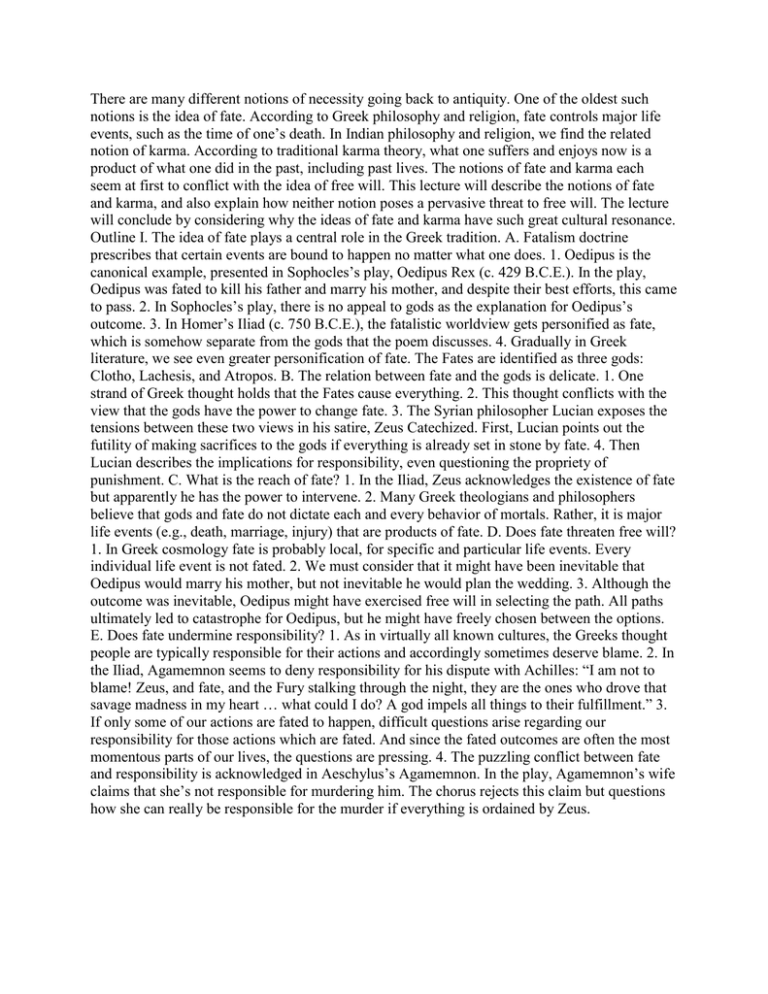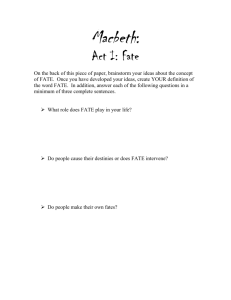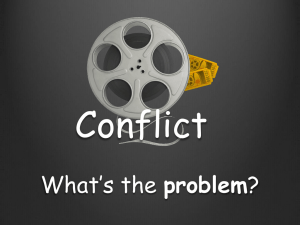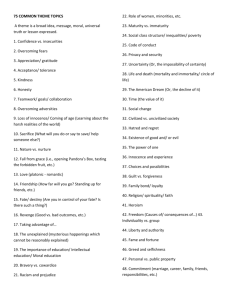Prof_ ShaunNicholsGreekIdeasofFate
advertisement

There are many different notions of necessity going back to antiquity. One of the oldest such notions is the idea of fate. According to Greek philosophy and religion, fate controls major life events, such as the time of one’s death. In Indian philosophy and religion, we find the related notion of karma. According to traditional karma theory, what one suffers and enjoys now is a product of what one did in the past, including past lives. The notions of fate and karma each seem at first to conflict with the idea of free will. This lecture will describe the notions of fate and karma, and also explain how neither notion poses a pervasive threat to free will. The lecture will conclude by considering why the ideas of fate and karma have such great cultural resonance. Outline I. The idea of fate plays a central role in the Greek tradition. A. Fatalism doctrine prescribes that certain events are bound to happen no matter what one does. 1. Oedipus is the canonical example, presented in Sophocles’s play, Oedipus Rex (c. 429 B.C.E.). In the play, Oedipus was fated to kill his father and marry his mother, and despite their best efforts, this came to pass. 2. In Sophocles’s play, there is no appeal to gods as the explanation for Oedipus’s outcome. 3. In Homer’s Iliad (c. 750 B.C.E.), the fatalistic worldview gets personified as fate, which is somehow separate from the gods that the poem discusses. 4. Gradually in Greek literature, we see even greater personification of fate. The Fates are identified as three gods: Clotho, Lachesis, and Atropos. B. The relation between fate and the gods is delicate. 1. One strand of Greek thought holds that the Fates cause everything. 2. This thought conflicts with the view that the gods have the power to change fate. 3. The Syrian philosopher Lucian exposes the tensions between these two views in his satire, Zeus Catechized. First, Lucian points out the futility of making sacrifices to the gods if everything is already set in stone by fate. 4. Then Lucian describes the implications for responsibility, even questioning the propriety of punishment. C. What is the reach of fate? 1. In the Iliad, Zeus acknowledges the existence of fate but apparently he has the power to intervene. 2. Many Greek theologians and philosophers believe that gods and fate do not dictate each and every behavior of mortals. Rather, it is major life events (e.g., death, marriage, injury) that are products of fate. D. Does fate threaten free will? 1. In Greek cosmology fate is probably local, for specific and particular life events. Every individual life event is not fated. 2. We must consider that it might have been inevitable that Oedipus would marry his mother, but not inevitable he would plan the wedding. 3. Although the outcome was inevitable, Oedipus might have exercised free will in selecting the path. All paths ultimately led to catastrophe for Oedipus, but he might have freely chosen between the options. E. Does fate undermine responsibility? 1. As in virtually all known cultures, the Greeks thought people are typically responsible for their actions and accordingly sometimes deserve blame. 2. In the Iliad, Agamemnon seems to deny responsibility for his dispute with Achilles: “I am not to blame! Zeus, and fate, and the Fury stalking through the night, they are the ones who drove that savage madness in my heart … what could I do? A god impels all things to their fulfillment.” 3. If only some of our actions are fated to happen, difficult questions arise regarding our responsibility for those actions which are fated. And since the fated outcomes are often the most momentous parts of our lives, the questions are pressing. 4. The puzzling conflict between fate and responsibility is acknowledged in Aeschylus’s Agamemnon. In the play, Agamemnon’s wife claims that she’s not responsible for murdering him. The chorus rejects this claim but questions how she can really be responsible for the murder if everything is ordained by Zeus.





